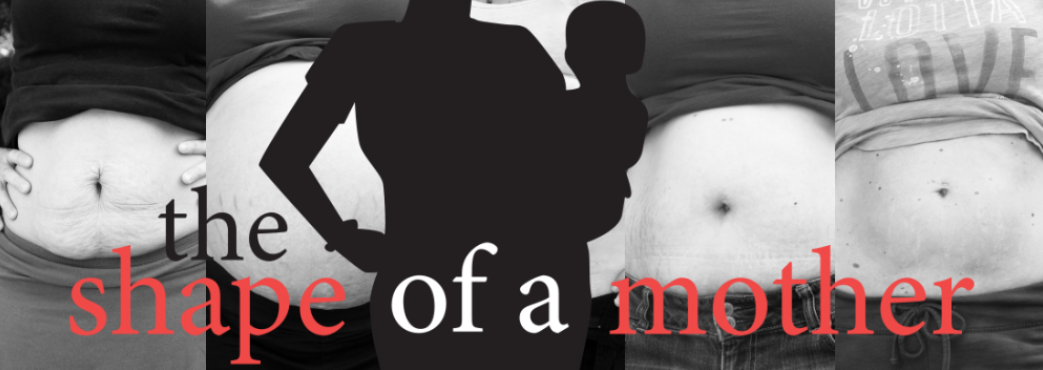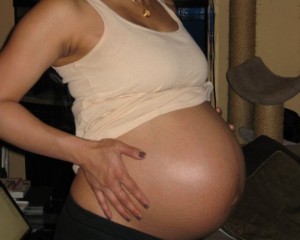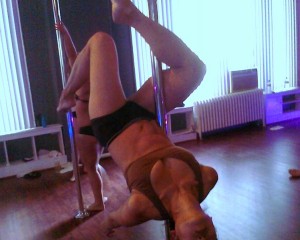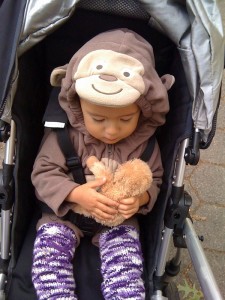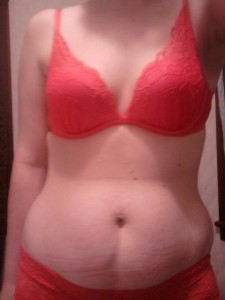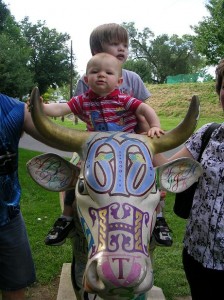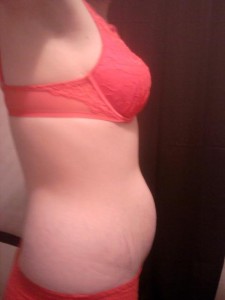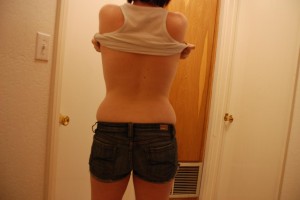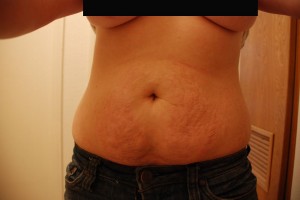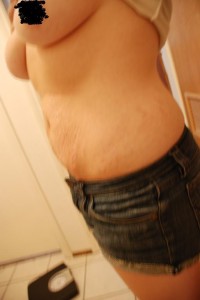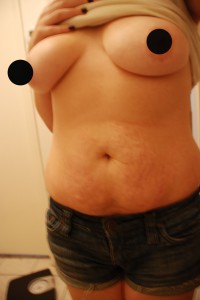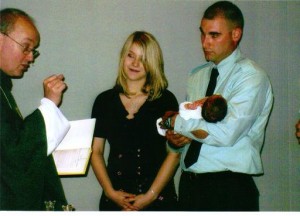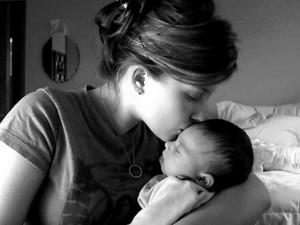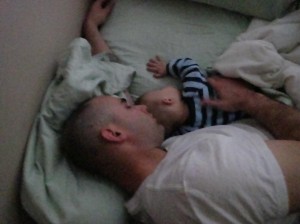Hearing things that weren’t there was bad; keeping silent about it was worse.
For months after my daughter was born via C-section, I felt miserable and pathetic. I had been so independent prior to giving birth at 31; then I saw myself as this needy, ugly thing, financially dependent on a husband who was suffering through his own depression. I feared he didn’t love me. With my family 3000 miles away, I watched the laundry and dishes pile up. Worst of all, I heard things.
Not voices, per se, but laughter–a quiet, but biting mocking laughter that seemed to arise whenever I was tired, alone, and trying to breastfeed my baby. I also sensed a hand pressing down on top of my head, as if trying to break in through my skull. I’d scream, waking my baby and alerting my husband to something terribly wrong. Eventually, I told him. A neuroscientist by training, he was familiar with what was happening to me and assured me that I wasn’t “crazy.” I did some internet research and found that I was experiencing post-partum psychosis. Well, great, I thought. Now let me get back to adjusting to motherhood, thank you very much.
Only the adjustment to this new role, this new body–this new life–still shook the very core of my sanity. And I kept trudging through, silently. I loved my daughter. I hated my life.
When she was 10 months old, I tried to kill myself using the unused painkiller meds prescribed for me after my C-section. A fight with my husband triggered off what I had been quietly plotting to do for months. I swallowed four pills before he wrested the remaining meds out of my hand and flushed them down the toilet. We talked throughout the night. I decided to seek professional help. I decided to live.
Searching for a care-provider that took my insurance was humiliating. The bureaucratic run-around and telephone-tag belittled my condition, making me feel even more guilt and shame for my experience. Did no one realize that post-partum depression with psychosis required immediate medical attention? I went to the one place that could definitely spot a life-threatening condition when they saw one. I checked into the ER with a simple note: I am going to kill myself. That was the beginning.
It’s been 9 months since I voluntarily committed myself for a three-day stay as a psychiatric patient in the very same hospital in which I had given birth. 9 months of reflecting, re-prioritzing, and cleaning-up. 9 months of getting to know my daughter and getting re-acquainted with my husband and myself. The last 40 weeks haven’t always been easy. But they’ve helped me to acknowledge and accept my husband’s love, and to nurture my family, my career and my needs–no matter how difficult. I love my daughter. I love my life.
I urge everyone out there to question why the physical and psychological toll of motherhood should bring about so much shame, so much silence. It needn’t be this way. Stigma and silencing are often just symptoms of ignorance. Most people don’t recognize that we mothers can love and adore our children and still feel intense pain transitioning into our new lives. Transition can be brutal. But what hurt me and my family more was keeping quiet about it until it was almost too late. Who benefits from maintaining the stigma–the ignorance–around post-partum psychosis? What false ideas of motherhood does this stigma uphold? If people took seriously the personal and medical havoc brought on by motherhood, imagine how we might change maternity policies, healthcare, career-planning—our idea of womanhood, itself.
My daughter is napping in my arms as I write this. Soon she will wake, and the silence will be over. I can only hope.
Thank you for reading.
pic 1: Me a couple months before my 30th birthday, and about 8 months before getting pregnant.
pic 2: A week before giving birth.
pic 3: I took-up pole-dancing as a way to reclaim my body. Here I am attempting a (flawed) outside leg-hook, 15 months post-partum.
pic 4: My little monkey!
~Age: 32
~Number of pregnancies and births: 3 pregnancies, 1 birth
~The age of your children, or how far postpartum you are: 1 daughter, 19 months
